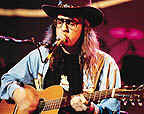The more species we proverb
Eric Lander (1924-)
 |
Number of proverbs are 1469558
varav 1407627 på engelska
Proverb (1469558 st) Search
Categories (2627 st) Search
Authors (167535 st) Search
Photos (4592 st)
Born (10495 st)
Died (3318 st)
Dates (9517 st)
Countries (5315 st)
Idiom (4439 st)
Lengths
Toplists (6 st)
Denna sidan visar ordspråk som liknar "The more species we look at, the more, frankly, we find that humans are not exceptional here.".
This website focuses on proverbs in the Swedish, Danish and Norwegian languages, and some parts including the links below have not been translated to English. They are mainly FAQs, various information and webpages for improving the collection.
Här har vi samlat citat sedan 1990!
Vad är proverb?
Hur funkar det?
Vanliga frågor
Om samlingen
Ordspråkshjältar
Hjälp till!
varav 1407627 på engelska
Proverb (1469558 st) Search
Categories (2627 st) Search
Authors (167535 st) Search
Photos (4592 st)
Born (10495 st)
Died (3318 st)
Dates (9517 st)
Countries (5315 st)
Idiom (4439 st)
Lengths
Toplists (6 st)
Denna sidan visar ordspråk som liknar "The more species we look at, the more, frankly, we find that humans are not exceptional here.".
This website focuses on proverbs in the Swedish, Danish and Norwegian languages, and some parts including the links below have not been translated to English. They are mainly FAQs, various information and webpages for improving the collection.
Här har vi samlat citat sedan 1990!
Vad är proverb?
Hur funkar det?
Vanliga frågor
Om samlingen
Ordspråkshjältar
Hjälp till!
 |
This website focuses on proverbs in the Swedish, Danish and Norwegian languages, and some parts including the links below have not been translated to English. They are mainly FAQs, various information and webpages for improving the collection.
Här har vi samlat citat sedan 1990!
Vad är proverb?
Hur funkar det?
Vanliga frågor
Om samlingen
Ordspråkshjältar
Hjälp till!
|
